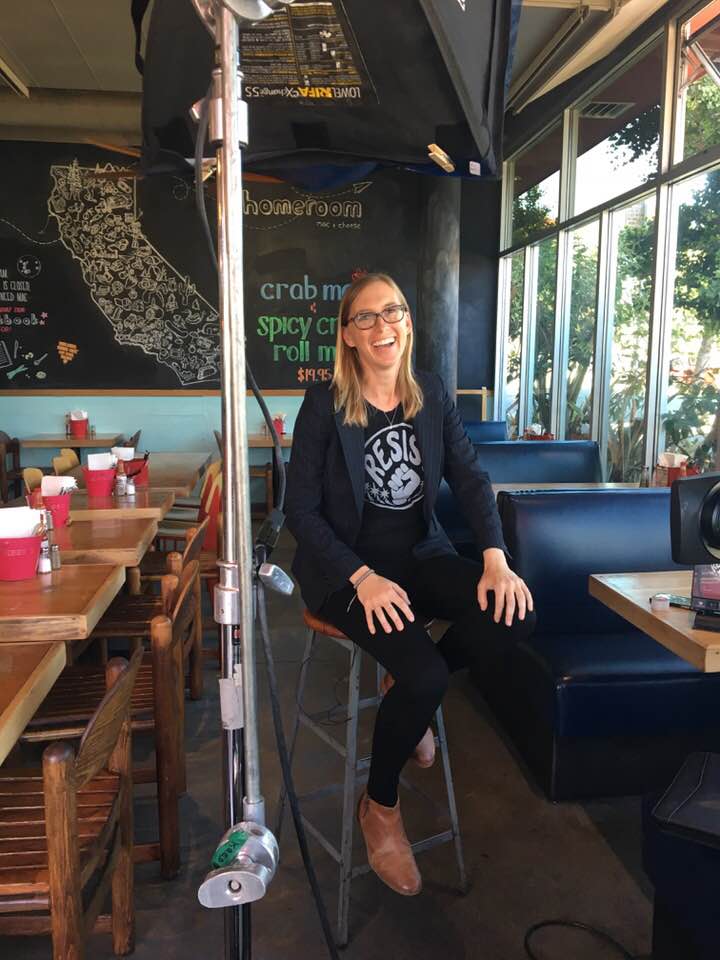When Erin Wade left her lawyering days behind to pursue her dream of opening a mac-and-cheese eatery called Homeroom in Oakland, California, her main goal, besides sharing her family recipe with the masses, was for the restaurant to be the best part of people’s day — for both guests and staff. Over the last decade, Wade has built Homeroom into a thriving business with an inclusive workplace culture, proving that it’s possible to be both profitable and progressive in the restaurant industry.

The MAC System has received national attention from media outlets like The Washington Post, The New York Times, and “20/20.” Wade was asked to testify about Homeroom’s protocol in front of a US Equal Employment Opportunity Commission Special Task Force studying harassment in the workplace.
Homeroom’s culture is rooted in four tenets: focusing on what makes customers and workers happy, building a diverse team of staff and leaders, using a mediation model drawn from restorative justice that empowers employees to be responsible and accountable, and developing a collaborative workplace so that people are involved in the decision-making process regarding any issues that affect them.
“We encourage our staff to not only notify us of problems but to help create solutions,” Wade says. When they realized that sexual harassment from customers was a pervasive issue, the solution arose naturally from Homeroom’s well-established culture.

“The staff felt empowered to hold a meeting with me, and we decided to turn it into a series of problem-solving sessions,” says Wade. The result of this collaborative brainstorm is the Management Alert Color System — or MAC System, for short — which has drastically reduced customer-based sexual harassment at Homeroom over the last four years.
The innovative and yet remarkably simple system has received national attention from media outlets like The Washington Post, The New York Times, and “20/20.” Wade was even asked to testify about Homeroom’s protocol in front of a US Equal Employment Opportunity Commission Special Task Force studying harassment in the workplace.
Here, Wade explains how the MAC System works, in her own words.
“We sort behavior into three different color categories. Yellow is nothing more than a creepy vibe. Orange is a creepy vibe plus a comment that is not blatantly sexual. For instance, ‘I like your shirt.’ Depending on how someone says it, it can be gross or it can be completely benign. And then red is either an overtly sexual comment, like, ‘You look sexy in that shirt,’ or touching someone else’s body.
“A server, host, or whoever is being impacted reports the color and then a manager has an automatic action to take. In the case of yellow, it’s actually staff choice. You can just alert the manager and say, ‘I have a yellow at Table 2. I want you to take over the table,’ and the manager does it, no questions asked. In the case of orange, the manager automatically has to take over the table. In the case of red, the manager automatically asks the guest to leave.

“Honestly, when we came up with it, we thought it was just going to give us a way to get impacted employees out of bad situations. We didn’t think it was going to curtail the harassment, but what’s amazing is that it really has. When we first started using it, almost all the staff members at that meeting had their own ‘red’ stories. It was something that was relatively common. And now, almost four years later, almost no one has a ‘red’ story. It’s something that happens maybe once a year. We find ourselves asking, ‘Does anyone even remember the last time this happened?’
“It turns out that the most severe sexual harassment incidents don’t start there. Someone doesn’t start by putting their hand down someone’s shirt. They start by giving them a look from across the room, then making a low-level comment and seeing if the person comes back to the table and puts up with it. They keep testing boundaries, and then they end up pushing really awful boundaries.
“It’s a great system because it gets predominantly women out of bad situations that make them feel uncomfortable, even if nothing’s happened. They don’t have to justify themselves. And it’s really easy for managers to use because it’s simple and effective. I don’t think this system would have ever been created if it hadn’t been created by our staff themselves.”
SEE ALSO:
Erin Wade is one of the 35 World-Changing Women in Conscious Business 2019
Erin Wade on the World-Changing Women Podcast
Secrets of a Successful CEO Sabbatical by Erin Wade





